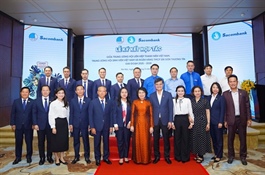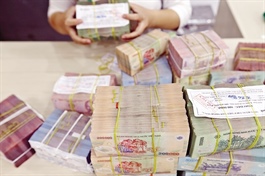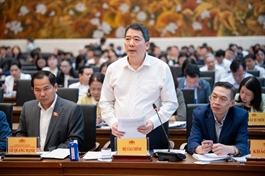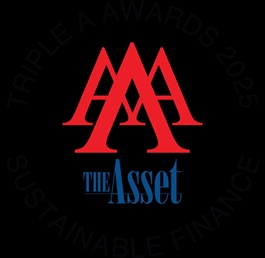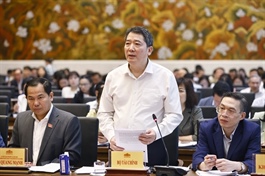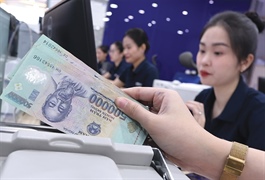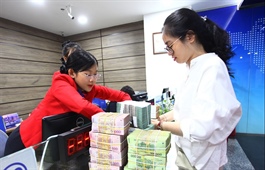Tax exemptions forthcoming for high-tech sphere
Tax exemptions forthcoming for high-tech sphere
A new bill on personal income tax is expected to offer a break from levies for those working in high-tech industries, with the government to clarify criteria for beneficiaries and related incentives.
The Ministry of Finance (MoF) is drafting a brand-new personal income tax (PIT) law which will oust the existing version, under which it has been suggested that PIT imposed on salaries of those working in high-tech industries will be removed.
The prime minister will specify the criteria for determining high-tech human resources as a flexible policy that is suitable to the reality of the nation’s personnel development strategies.
The draft also proposes tax exemption for individuals performing sci-tech tasks using the state budget, income from the transfer of emission reduction certificates, the first transfer of carbon credits, and interest from green bonds. This is similar to the experience in other countries, the MoF said.
Commenting on the draft law, the former Ministry of Information and Communications proposed to add the subject of “digital technology human resources” to Article 5 of the draft law.
“The draft Law on Digital Technology Industry is introducing a policy to draw in digital technology personnel, digital technology talents who are Vietnamese, foreign experts with qualifications and skills meeting some criteria,” the ministry noted. “Preferential policies on PIT will attract digital tech human resources to work and contribute to Vietnam, creating motivation and development space, meeting the requirements of developing the digital tech industry.”
Bui Thanh Long, an IT engineer from FPT Software, said, “The proposal of no PIT for people in high technologies has attracted me. But I am not sure whether all IT engineers are high-tech employees or not. I am waiting to see which specific sectors will be accepted, and I am willing to study some more courses in order to benefit.”
The concept of high-tech workers in Clause 10, Article 3 of the Law on High Technology 2008 defines it as people with qualifications and skills that meet the requirements of research and development, adoption of related technology and services, management of related activities, operation of equipment, and production lines of relevant products.
Meanwhile, the draft resolution on establishing and operating financial centres proposed that managers, scientists, and experts with high professional qualifications in this area would be exempted from PIT.
Other groups of subjects also with PIT arising at state authorities or members of financial centres are exempted from tax until the end of 2035. In the following years, the MoF proposed to reduce by half of PIT.
“The exemption of PIT is necessary to attract highly qualified scientists to Vietnam, into the financial sector to build and operate financial centres,” the MoF noted in the dossier of the draft law.
However, according to the MoF, the current law on PIT does not stipulate tax incentives applicable to specific subjects. The law only stipulates tax exemption for certain types of income to ensure social security. The ministry emphasised that “not all employees in financial centres are the subjects to be attracted” and “preferential policies (if any) need to be applied selectively”, focusing on qualified human resources in some sectors of the economy.
Moreover, the MoF is considering supplementing appropriate regulations in the law on PIT for the income of high-tech human resources working in various enterprises and projects prioritised for investment and development.
“The rate of PIT reduction for this group of subjects needs to be considered to ensure harmony between encouraging prioritised subjects, maintaining state budget revenue, and not distorting the role of PIT,” the MoF emphasised.
Policy breakthroughs, including tax policies, are conditions for attracting talents in the high-tech sector, being the motivation to implement key national tasks on science and technology, innovation, digital transformation, development of AI technology and training.
Do Thanh Binh, director of International Cooperation of the Vietnam Software and IT Services Association, said, “Between now and 2030, Vietnam needs about one million more workers in the IT sector to meet the needs of today’s technology explosion; and increase of 75 per cent in personnel demand for AI; 20,000 experts per year in cybersecurity; and 30 per cent more personnel related to blockchain technology.”
The draft law on PIT is expected to be discussed by the National Assembly in October, approved in May 2026, and take effect from 2027.
- 10:00 28/03/2025




